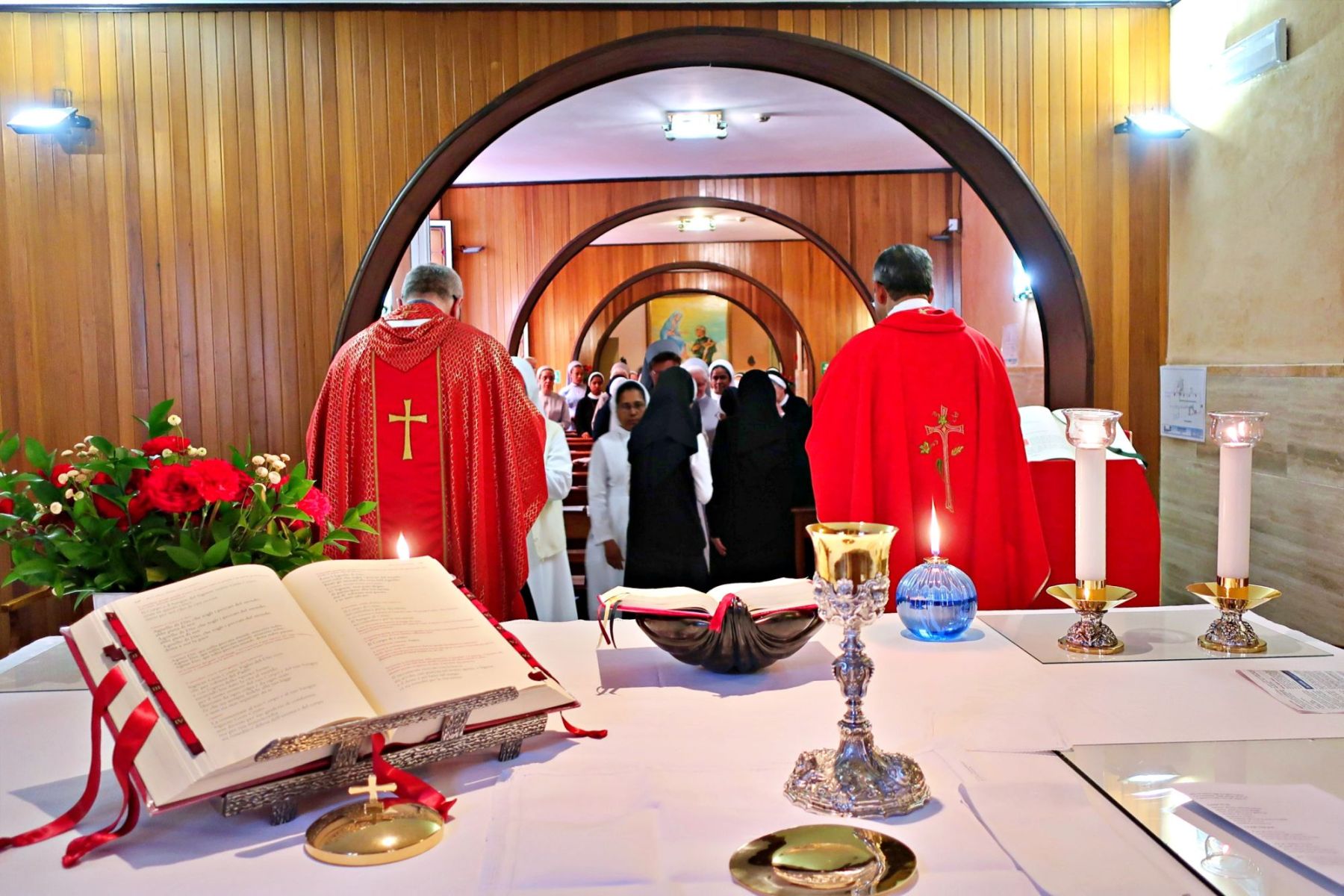Fr. Eduardo E. Aguero, SCJ
Mk 1:21-28
4TH SUNDAY IN ORDINARY TIME – YEAR B
With a few parting words, my father reinforced in me resilience and perseverance in the mission that the Lord entrusted to me. That was back on May 17, 1998, three days before his death. The same day we, the first group of the Priests of the Sacred Heart of Jesus to the Philippines, arrived in Manila. I rushed to make a long-distance call to my parents. Dad told me excitedly: “Son, your hands are on the plow, don’t look back”, quoting the words of Jesus to a disciple who wanted to say goodbye to his parents (Lk 9:62).
These last words of my father also reflect his life of commitment and fidelity to us, his family, his work, his environment, the parish, and his friends. They helped me to continue growing in my missionary vocation and to reaffirm it when in moments of temptation and crisis. And I ask myself: How can it be that some words spoken from the other side of the planet more than thirty years ago have penetrated so deeply into me and still have so much power? I believe that’s because those words I heard from my father are the words of Jesus, the “author, and perfecter of our faith” (Heb 12:2).
Furthermore, they are words that were accompanied by the love of someone who, sensing his impending departure from this world, wanted to give them to me as a testament. Yes, it is the creative and recreating power of the Word of God that, like the plow, wounds the earth so that it is rendered fertile. It is like that two-edged sword that penetrates to the depths of our being and reveals to us our true identity and vocation (Heb 4:12); in my case, that of a sower of the Gospel in these distant lands of Asia. It was that same Word that made those fishermen of Galilee leave their boats on the shore to follow Him unconditionally, as we meditated last Sunday (Mk 1:18).
The text of Mark on this Sunday shows the beginning of the ministry of Jesus, who immediately after calling his disciples, enters the synagogue of Capernaum with them on a Saturday. The first action of Jesus’ public ministry is to teach the people and deliver a man from the bondage of the devil. This double action surprises people in two moments: First, they marvel at the authority of his teaching (Mk 1:23), which was not like that of the scribes. This text shows the fulfillment of the prophecy that God makes to Moses in the first reading: “I will raise up for them a prophet like you …; I will put my words in his mouth…” (Deut 18:18).
It is not the words of Moses, but the words of God, that arouse the admiration of the people. The authority of the author of life speaks and connects with the most intimate essence of our being. A word that feeds and recreates us: “Man does not live by bread alone, but by every word that comes from the mouth of God” (Deut 8:3; Mt 4:3-4). In a second moment, Jesus confronts the power that enslaves us and leads us to isolation and death: the power of Satan, the enemy of God. It is the power of lies and deception, the old serpent that the son of God came to defeat (Gen 3:15).
The first part of Mark’s gospel presents Jesus as the Messiah, God’s Anointed One. And this is the first proof of his messianic vocation: his teaching – that is the meaning of the law or Torah, the teaching of God – and his power against the evil one. Last week in an interview with Pope Francis, a journalist asked him, “Why are there so many wars in this 21st century: in Ukraine, in the Middle East, in Yemen, in Africa…?” The pope answered spontaneously: “Everything begins in the heart of man.”
Structures help, but everything depends on pure and free hearts. Therefore, the fight against evil must first be waged within us, in our hearts. There lies the origin of pride and wars. It is there where the deception of the evil one wreaks havoc. Only the power of the Word of God put a limit to the fury of the sea waves (Job 38:8-11) and defeated the prince of darkness (cf. Jn 1:5).
Jesus has the power to silence the resentful, envious, jealous, proud, selfish voices in us: “Shut up and get out of him!” (Mk 1:25). Then, the crowd reacts for the second time: “What does this mean? A new teaching with authority!” (Mk 1:27). Jesus’ teaching has the authority of Truth, it is consistent with his action, with his life, and with his identity as the Word of God. His word and his life show us the unconditional love of God, because as the devil says, although without faith, He is “the Holy One of God.”
These readings challenge us to allow ourselves to be recreated and liberated by the word of God so that, like Jesus’ first disciples, we be transformed into “Fishers of Men” (Mk 1:17). It is His Word that reveals to us our true identity and vocation. Once we hear it, we can say with Peter: “Lord, to whom shall we go? You have words of eternal life. And we believe and know that you are the Christ, the Son of the living God” (Jn 6:68-69).


 Follow
Follow


